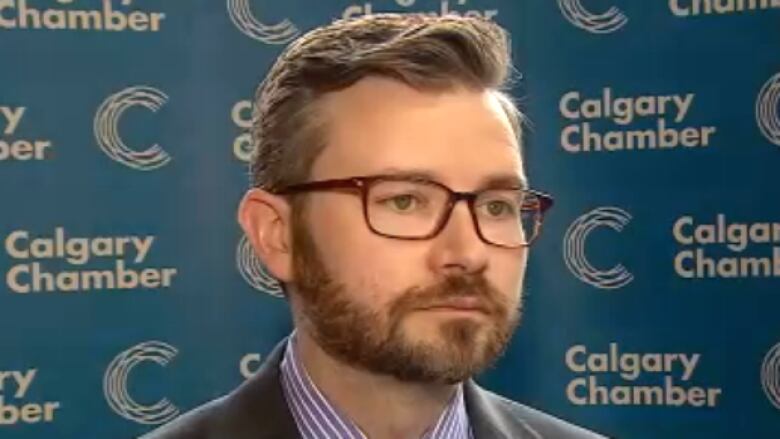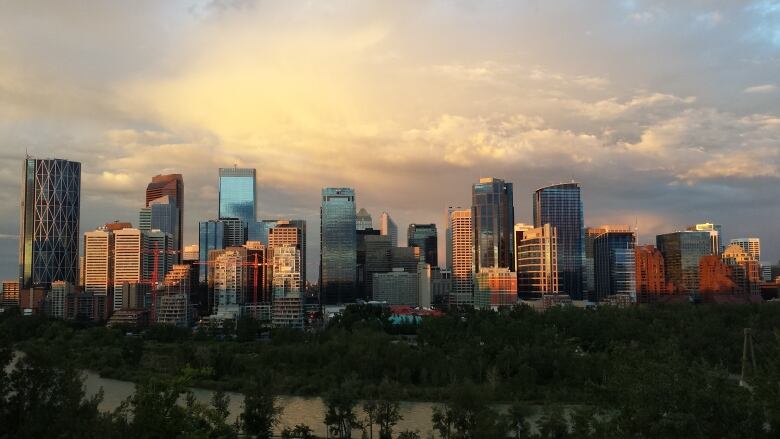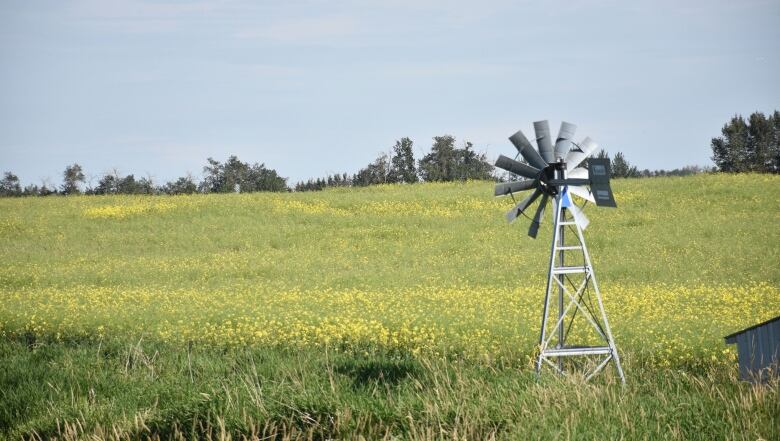Q&A: $80 oil would be a bonanza for many, but would it be bad for Calgary?
Lower energy prices are best way to encourage diversified economy, says former chamber president

When Adam Leggewas named Calgary Chamber of Commerce president in 2010, oil was over $75 US a barrel and finding downtown office space was a chore. Muchhas changed. But Leggeremainsasteadfast believer in the city and innovation.
Before Leggemade his exit from thechamber this month, he spoke to CBCNews aboutCalgary's prospects, how another oil boom could harm diversification and whether the "cowboy"stereotype isbad for business.
Leggejoinsthe University of Calgary in January as its director of the Global Business Futures Initiative.
Q: Calgary has seen a lot of change over the last 10 years. Looking out over the next 10 years, what do you think we'll see in terms of what Calgary looks like economically?
A: In 10 years we're going to look back and say, 'OK, I think we're starting to feel like we've got our groove back.' I actually think it's going to take that long. And when I say that, it's above and beyond sort of letting oil prices rise and letting that be the determinant of our future.

I am talking about real substantial new company creation and new economic growth, new job growth. It's going to take a while simply because what was lost from the oil and gas was so significant.
- 'It's still not what it used to be': Alberta economy rebounds but unemployment remains sticky
- Wave of business deals will reshape Alberta economy, study says
Long term, I am optimistic about Calgary. I think it has incredible assets that any business or any person would kill to have: high quality of life, incredible location, safe environment, stable government, rule of law, highly educated people.
Q: What is the key for us to stay on track, or even get on that track?
A: I think we're on the right track, to be honest. I see the work that people are doing in technology; I see the work they're doing in agriculture. I'll be honest, the way to stay on this track, and it sounds probably terrible to many people in the industry, is to not let oil prices get back to $80-$100 a barrel.
As soon as that happens, everybody's eye goes off the prize and we're back to the same old, same old.

- Alberta unveils $1.4B plan to drive innovation, boost energy industry, diversify economy
- 'You're still the envy of the nation': What opportunities lie ahead in post-recession Calgary
If Alberta and Calgary really want to diversify, lower energy prices are probably the best way to get there because it will force our hand to recognize that ... we can't rely on it to drive us out of an economic downturn and that we have other people and other assets we can use to grow. And I'm not saying that I don't want the energy sector to succeed.
I absolutely do. It's been a huge part of our history and it will continue to be a huge part of our future.
I think what we got carried away with was, despite the great work of the companies and despite the innovation, we were riding economic growth that really wasn't being driven by us. It was being driven by the price.
Q: What can we do to continue this march towarddiversification?
A: I have always been a big fan of putting down some pretty bold bets ... and I don't mean that the government should be investing in companies per se but investing in the things that we actually have the chance to be world leaders in.
We're not going to be a world leader in nanotechnology. We're not going to be a world leader in batteries and electric cars.
But we can be a world leader in energy technologies, we can be world leader in agriculture.
We can be world leaders in different elements of the technology sector, so let's figure out what those are going to be and let's really double down on those.
And that comes from either some of the research funding, the grant funding, the innovation that happens both in companies and within universities.

Q: Do you think Calgary is getting a reputation as a place for innovation or do we still have some distance to go before we get there?
A: I think there are pockets of it but I think as a city, overall, I don't think it's viewed (that way). I think we still suffer from the stereotype of Stampede and cowboys and pickup trucks and oil, which is not a very innovative stereotype.
I think places like Waterloo and Vancouver are deemed to be more innovative within Canada, so we've got some work to do to change that perception.
Q: Is that a stereotype or is that true that we're not that innovative?
A: I definitely think there are some zones where we're not innovative. We got complacent in $100 oil and I don't think we were all that innovative at that time in the big picture.
Our city council, their best efforts notwithstanding, have held back some innovative policy and opportunities for Calgary to be a place that shows that it can think progressively. So, yes, we can do a lot better.
This interview has been edited and condensed for clarity.












_(720p).jpg)


 OFFICIAL HD MUSIC VIDEO.jpg)
.jpg)



























































































